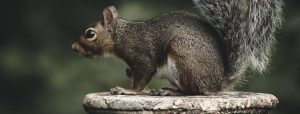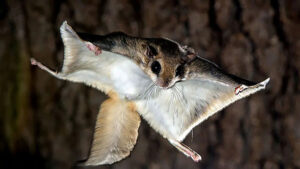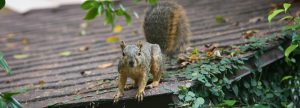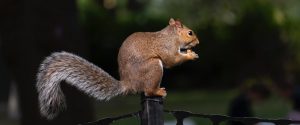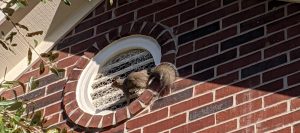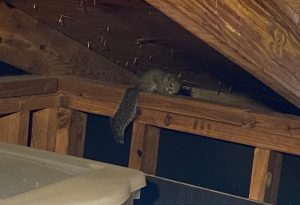If you hear sounds in your attic during the day, most times it is a squirrel. Squirrels will most likely make noises during the early morning and late evening when squirrels enter and exit the home. Squirrels commonly produce scurrying, scampering, and scratching sounds in the attic.
Because of their size, it can be fairly loud. They often roll acorns or nuts, which describes that odd rolling sound emerging from the ceiling. Squirrels will also produce gnawing and grinding sounds similar in mice.
Listen to squirrel sounds
Squirrel Vocalizations
They have a wide range of vocal sound features, including squeaks, barks, and grunts. When distressed, squirrel kits make high-pitched, chirping noises similar to birds.
According to mammologist Bryan Harding, squirrels use sound to protect themselves and their territories. Their alarm calls are made up of screeches, rattles, barks, and snorts. The kuk, muk-muk, and quaa sounds are used to convey an interest in mating.
Squirrel Sound Meanings
| Sound | Meaning |
| Rattles | Defending territory |
| Screeching | Defending territory |
| Barking | Alarm call |
| Buzz | Alarm call |
| Kuk-kuk-kuk | Warning to predator |
| Quaa | Warning to predator |
| Seet | Terrestrial predator |
| Seet-bark | Aerial predator |
| Muk-muk | Made by young squirrels or when mating |
| High-pitched chirp | Young calling for mother |
| Crying | Young squirrels |
Baby Squirrel Sounds
Baby squirrels produce distinct sounds, but they are rarely loud enough to hear—probably a good thing, if predators happen to be nearby. When they are hungry, they will call their mother with a soft “muk muk” sound.
While newborns can barely make any sounds, the vocal ability of a squirrel develops rapidly. At three days old, baby squirrels can make a small squeak noise. At three weeks, they can growl out to their mother when hungry; at four weeks, they become capable of short screams.
Unsure what noises you are hearing in your attic?
Squirrel Movement Noises in Attic
Hearing sounds emanating from your attic when nobody should be up there is never a welcome occurrence. After getting over the initial fright, listen carefully. Squirrels commonly establish nests in these areas, and make certain noises that give their presence away:
Scurrying. Light running and scratching noises can mean that a squirrel has gained entry to your attic and is maneuvering about.
Rolling. Squirrels are eager collectors of nuts and acorns. They often transport these objects by rolling, which can be audible.
Rustling. Despite their impressive agility, squirrels aren’t the smallest creatures and can generate a considerable amount of noise while performing their day-to-day activities, like making nests and storing food. These activities generate clear rustling noises.
Squirrel Sounds in Walls
Squirrels make many of the same scurrying, squeaking noises in walls as they do in attics. These sounds are more prevalent in the morning and evening, when squirrels are less likely to be outside searching for food. Squirrels are easily frightened, so if you bang on the wall, you will likely hear them scurrying away.
What Do You Do if You Hear Squirrels in Your House?
Call Trutech In To Get Squirrels Out


